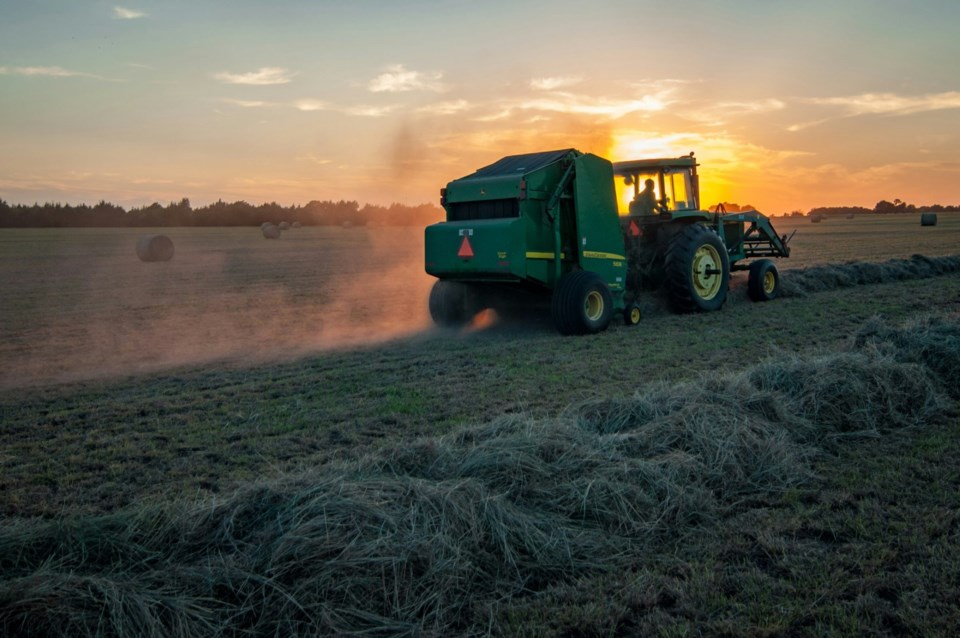For farmers and stakeholders across the agri-food supply chain, 2025 has started on a high note.
Jan. 6 was a particularly good day for the sector. While Prime Minister Trudeau remains at the helm, Parliament has been prorogued, and with it, the future of some contentious legislative proposals is in serious doubt. When MPs return on Mar. 24, the government will likely face a confidence vote, potentially leaving several flawed bills and proposals to die on the order paper.
Among the most notable casualties are Bills C-282 and C-293, as well as proposed changes to the taxable portion of capital gains. For those of us concerned about the economics of food and farming, this marks a rare victory for pragmatism over politics.
The proposed capital gains tax reform
One of the most controversial proposals that failed to survive was a plan to increase the taxable portion of capital gains from 50 to 66.7 per cent for individuals and companies earning over $250,000 in capital gains. This change would have represented a significant financial burden for farmers, who often rely on the sale of land, equipment, or quotas as part of succession planning.
While the Canada Revenue Agency (CRA) may still be considering modifications to capital gains taxation, the rejection of this proposal underscores the importance of sound political leadership. Farmers and agri-food businesses need policies that foster growth and sustainability – not measures that create additional economic barriers. The failed proposal highlights how chaotic and disconnected Ottawa’s approach to economic policy has been in recent years.
Bill C-282: A misguided trade policy
Bill C-282, championed by a Bloc Québécois MP, aimed to grant permanent immunity to supply-managed sectors – poultry, eggs, and dairy – during future trade negotiations. This would have barred Canada from making further concessions on these industries, such as granting tariff-free access to foreign cheese, butter, chicken, or eggs. While supply management plays a critical role in stabilizing certain agricultural markets, the approach proposed in this bill would have significantly narrowed Canada’s trade flexibility.
Currently, tariffs on supply-managed goods can exceed 300 per cent for imports, a level of protectionism that has drawn ire from trading partners, particularly the United States. With Donald Trump set to return to the White House, his administration already threatens tariffs on nearly all goods, including the $42 billion in agri-food exports Canada sends south annually. Bill C-282 would have made supply management a lightning rod in bilateral trade discussions, exposing the sector to targeted retaliation.
Protecting less than two per cent of the Canadian economy at the expense of the other 98 per cent is simply bad trade policy. Supply management has functioned effectively for decades without the need for such drastic legislative measures. This bill’s demise is a relief for those who value balanced trade agreements that benefit the broader economy.
Bill C-293: The overreach of “Canada’s Vegan Act”
Bill C-293, dubbed “Canada’s Vegan Act,” was another private member’s bill that sparked significant debate. Ostensibly designed to improve pandemic preparedness, it included provisions to “de-risk” animal protein production and promote alternative protein consumption. While innovation in food production is important, this bill crossed a line by appearing to push a particular dietary agenda – namely, vegetarianism and veganism – under the guise of public health.
Such proposals alienate farming communities and undermine consumer choice. Canada’s food system thrives on its diversity, and any attempt to dictate what Canadians should eat contradicts the principles of food democracy. Consumers must remain free to make their own decisions about their diets without undue interference from Ottawa.
The fact that Bills C-282 and C-293 advanced through the House of Commons reflects a deeper dysfunction in Parliament. Private member’s bills rarely make it this far, yet these proposals sailed through the lower chamber and left the Senate scrambling to decide their fate. Parliament’s prorogation provides a much-needed pause, allowing Canada’s lawmakers to reassess their priorities.
While both bills could technically be reintroduced, their chances of survival are slim. With Senate committees requiring reconstitution, the likelihood of either bill becoming law is infinitesimal – much to the relief of Canada’s farming communities and trade partners.
The rejection of increased capital gains taxes and the demise of Bills C-282 and C-293 are wins for the agri-food sector and Canadian consumers alike. Farmers and food producers can now move forward more confidently, knowing that ill-conceived policies are less likely to hinder their operations.
Supply management has proven its resilience without the need for overly restrictive legislation, and food democracy remains intact. Canada thrives on choice, innovation, and the freedom to compete on the global stage. Let this moment remind us that political leadership matters, especially in preserving the economic pillars that feed our nation and sustain our communities.
Dr. Sylvain Charlebois is a Canadian professor and researcher specializing in food distribution and policy. He is the senior director of the Agri-Food Analytics Lab at Dalhousie University and co-host of The Food Professor Podcast. He is frequently cited in the media for his insights on food prices, agricultural trends, and the global food supply chain.
©
The commentaries offered on С����Ƶ are intended to provide thought-provoking material for our readers. The opinions expressed are those of the authors. Contributors' articles or letters do not necessarily reflect the opinion of any С����Ƶ staff.




